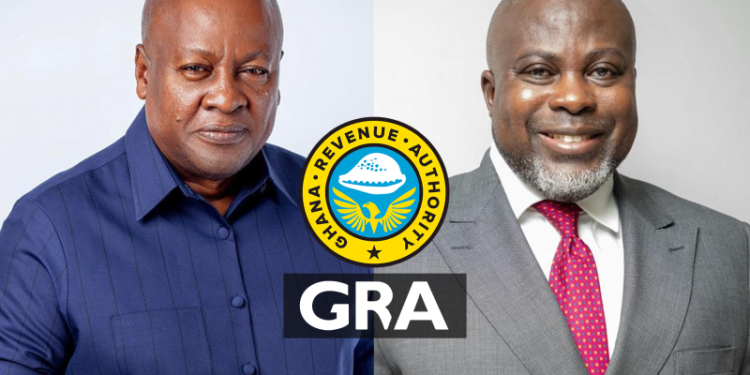In a developing legal dispute, a private citizen, Emmanuella Sarfowaah, has filed a lawsuit seeking to nullify the appointment of Anthony Kwasi Sarpong as the Acting Commissioner-General of the Ghana Revenue Authority (GRA).
Sarfowaah argues that Sarpong’s appointment is fraught with ethical and legal irregularities, particularly concerning his ties to auditing firm KPMG.
Sarpong, who was previously a senior partner and Country Managing Partner at KPMG, was appointed by President John Mahama to head the GRA in an acting capacity.
However, Sarfowaah contends that this move violates legal provisions, especially given the absence of a Governing Council at the time of his appointment.
Conflict of Interest Concerns
The plaintiff has raised concerns over potential conflicts of interest, asserting that KPMG has had a longstanding financial relationship with the GRA.
She alleges that Sarpong’s leadership at KPMG until at least January 21, 2025, creates a situation where his independence and impartiality in managing tax affairs could be compromised.
In response, KPMG has issued a statement confirming Sarpong’s resignation from his role as Country Managing Partner following his appointment.
Read Also: ECG cracks down on widespread meter tampering, warns of legal consequences
Despite this, Sarfowaah insists that his prior associations with KPMG cast doubt on his suitability to lead a government agency responsible for tax collection and revenue mobilization.
Alleged Breach of Appointment Protocol
Sarfowaah further argues that the absence of a Governing Council at GRA renders the appointment legally void.
According to her suit, the GRA, as a statutory body, requires its Governing Council to provide advisory input before any substantive or acting Commissioner-General can be appointed by the President.
Without this process being duly followed, she claims the appointment lacks legal merit.
Court Action and Relief Sought
Sarfowaah is requesting the court to overturn the appointment and issue a perpetual injunction preventing Sarpong from assuming the role.
Additionally, she seeks an injunction barring the President or any government authority from appointing any former KPMG employee or person with interests in KPMG to the GRA’s top position in the future.
Her suit also calls for an injunction against the GRA Governing Council, should it be constituted, from recommending or approving Sarpong’s appointment under Article 195 of the 1992 Constitution.
Broader Implications
This legal battle raises questions about governance practices in state institutions and the potential influence of private sector relationships on public office appointments.
If successful, the lawsuit could set a precedent regarding ethical considerations in public sector hiring and the independence of revenue administration bodies in Ghana.
As the case unfolds, legal and political observers will closely watch how the judiciary interprets the legal and ethical complexities surrounding this high-profile appointment.
























